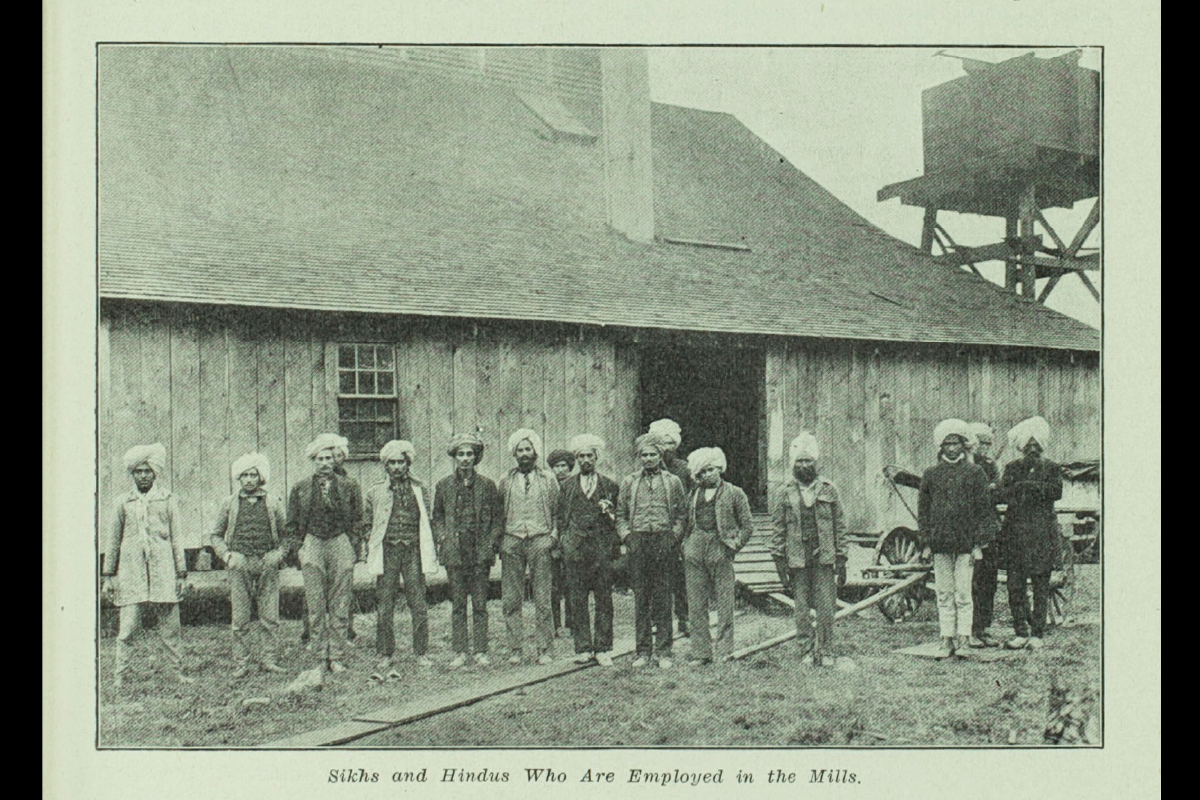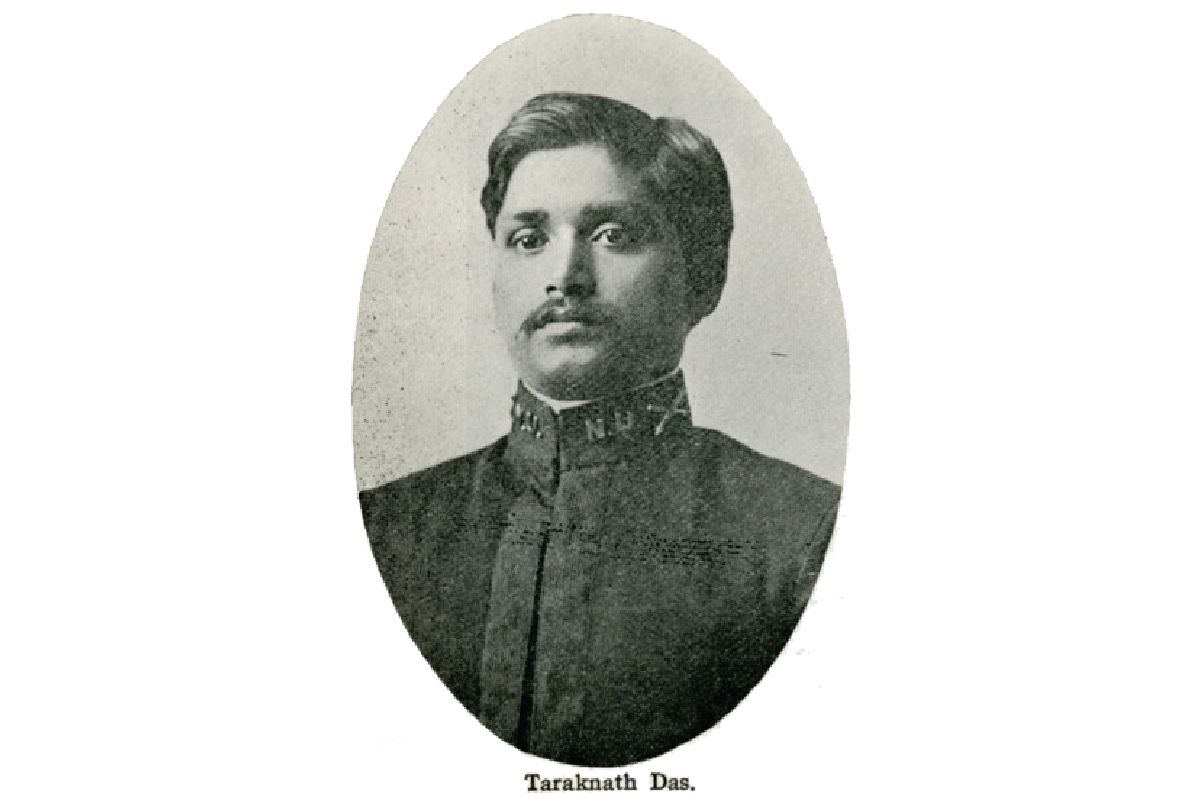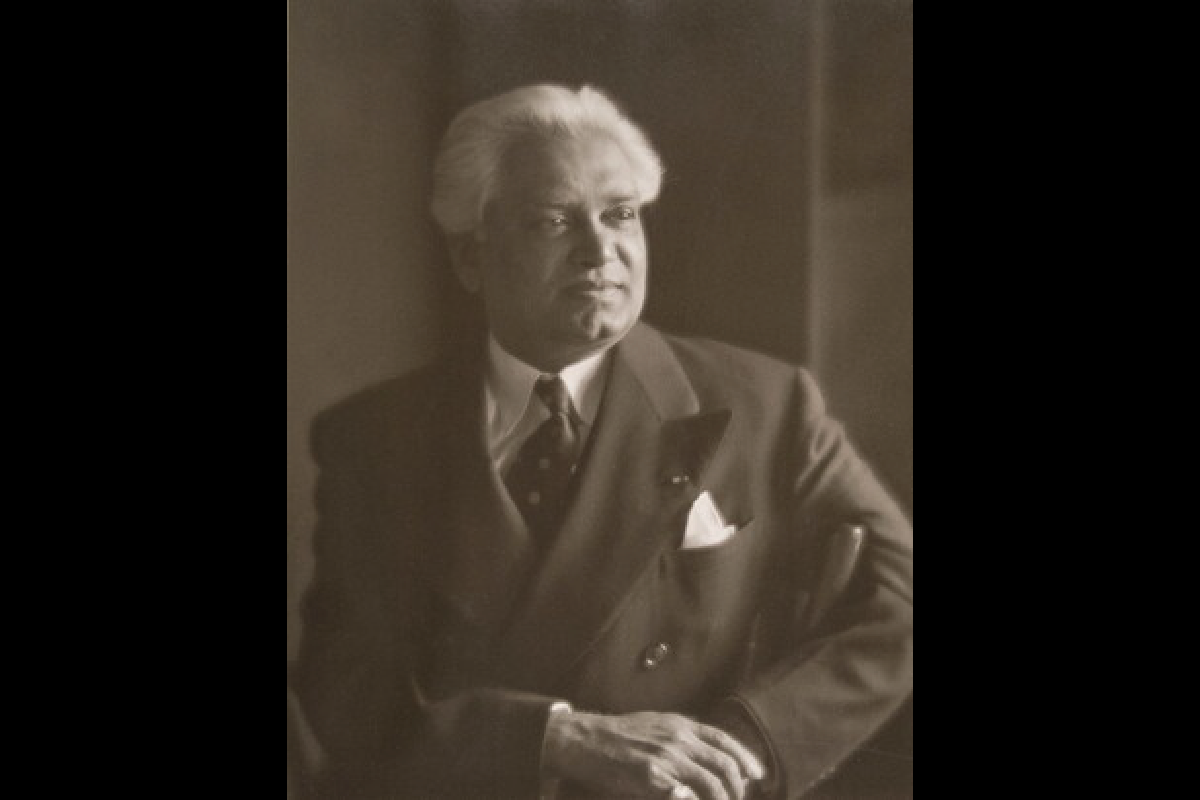Applied Thrice, Denied Twice
Born in 1884 in Birbhum in western Bengal, north of Calcutta, Taraknath Das was reared in the actively nationalist milieu of the Bengali youth of his generation.
One of the first members of the Anushilan Samiti, the radical revolutionary group, he traveled abroad to Japan in 1905, as he aimed to gain both education and anti-colonial training like many of his contemporaries.
In 1906, Das crossed the Pacific Ocean from Japan and entered North America via Seattle. There he worked on the railroads and in odd jobs before moving to San Francisco, where he found a burgeoning community of Indian laborers working in lumber and shingle mills, small-scale agriculture, celery farms, and various seasonal labor.

In 1907, he found a job as a laboratory helper at Berkeley and applied for the first time for U.S. citizenship. This application, his first of three, was denied on the grounds that Asians were considered not white.
That same year, Das began to work for the Immigration Service in Vancouver, and worked there until April 1908, when he started the Free Hindustan as a mouthpiece of a growing anti-colonial movement.

In 1908, after leaving the INS, Das left the Northwest to attend Norwich University, a military training academy. Correspondence shows how he was monitored as someone advocating war against a state with which the U.S. was at peace, that of the British Empire.
Suspended in 1909 because of his advocacy of war against their ally the British Empire, he managed to find his way back to Seattle and earn a BA in political science. He began researching an MA on employer liability law in 1910, worked with laborers in Berkeley, and earned an MA in 1911.
Soon afterward, he filed for citizenship, but was again denied, in 1912, in Cooks County, Coquille, Oregon. This application was denied not officially because of race, but because of his “moral character.”

Read the full essay by Neilesh Bose in TIDES Magazine.